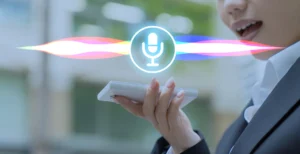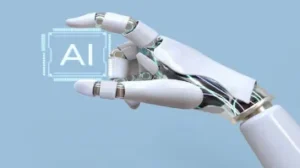Today, students are no longer confined to traditional classrooms, with blackboards and textbooks in front of them. The rise of artificial intelligence (AI) has changed the way people learn, both inside and outside of school. Today, AI is integrated into many tools that students use every day, such as smart learning platforms, educational apps, and virtual tutors. These AI-powered technologies personalize learning and help with time management, homework support, and even mental health. What was once considered futuristic is now a daily occurrence for many students. Artificial intelligence makes learning more engaging, efficient, and flexible to meet the needs of each student.
Every Student Gets a Personalized Learning Plan
One of the most important changes that AI has brought to education is personalizing learning. Each student learns in their own way and at their pace. AI enables learning systems to adapt to each student’s needs, skills, and weaknesses. These systems monitor students’ learning progress in real time and adjust lessons or provide extra practice based on what they discover. This way, students who are struggling can get more help without feeling left behind, and pupils who are already doing well can continue learning without obstacles. AI ensures that students do not have to follow a rigid learning method, making learning more adaptive and beneficial for everyone.
Virtual Tutors Provide 24/7 Homework Help
AI makes it possible for students to get homework help at any time. Virtual tutors and chatbots are now ready to answer students’ questions, analyze difficult points, or comment on homework. These AI assistants are always ready to help, without the need for a traditional tutor to come in person. Students can ask questions in simple language and get an immediate answer. When students know that they can get help at any time, such as during evening study or exam preparation, they feel safe and free to manage their study time. This makes it easier for students to study independently and still stay in touch with their teachers.
Better Study and Note-Taking Tools
Taking notes and organizing material is an important part of school, and AI tools are making these tasks easier. Students can now use applications that automatically summarize long texts, highlight important points, and even convert oral notes into written notes. Some AI tools can convert students’ notes into flashcards, test their knowledge level, or create mind maps to help them understand difficult concepts. These smart tools can help students improve their memory and reduce manual work. With AI for organizing learning materials, students can spend more time understanding and applying what they’ve learned.
Efficient Time Management and Scheduling
As a student, you may have to balance classes, homework, exams, community activities, and personal matters. AI-powered scheduling tools can help students better manage their time, create personalized study plans, track deadlines, and send reminders. These methods can help you determine when to study based on your learning performance and even remove distractions when you’re struggling to focus. AI can spot trends in past behaviors and suggest ways to stay on track by observing them. This smart scheduling can help students reduce stress, prevent procrastination, and ensure they don’t forget important things. It gives kids the tools they need to take control of their daily lives and develop positive habits that will benefit them throughout their lives.
Make Learning Better for All Students
AI also makes education more open and accessible to everyone by helping students with learning disabilities or difficulties. For example, speech-to-text tools can help students who struggle with writing, and text-to-speech features can help pupils who struggle with reading. AI can translate text into different languages to help people who don’t understand those languages better understand what they’re reading. Visual tools and interactive sections can also help students who struggle with concentration or processing information learn more. By removing barriers to learning, AI ensures that every learner has the same chance of success, regardless of physical, language, or mental health issues.
Language Learning Becomes More Interactive
Artificial intelligence (AI) can provide children with a fun and engaging way to learn a language. Today, language apps use AI to provide personalized vocabulary exercises, real-time feedback on pronunciation, and grammar tutoring. The lesson content adapts to the student’s progress and skill level, accelerating the learning process. Some websites use speech recognition technology to communicate with students, making the conversations feel like they are there. AI makes language learning more engaging and helps people build confidence and fluency in a natural and fun way. Students no longer have to rely solely on textbooks or school to learn a new language.
Easy-to-use Tools for Research and Writing
Students spend a lot of time researching and writing. AI makes both tasks simple and convenient. AI search engines can quickly find reliable sources, describe academic papers, and even suggest where to find more information. Writing assistants help students improve their grammar, clarity, and tone by providing instant feedback on their writing and papers. These tools can also detect cheating, helping students stay honest in school. With the help of AI, students can write better texts and learn to express their ideas more easily. This advice is especially useful for students with limited writing skills or who are required to meet strict requirements.
Conclusion
AI is changing students’ lives in big, positive ways. AI tools can provide students with 24/7 help with everything from time management and mental health to personalized learning and tutoring. These tools help students learn better and manage their emotions, time, and future planning. As technology continues to develop, AI will become more widely used in education. Artificial intelligence makes learning more fun, open, and engaging. Students who use AI every day will stay ahead in school and learn the technical skills they need to succeed in the future.
FAQs
1. What does AI mean for schools?
When applied to education, AI technologies such as machine learning and natural language processing can improve learning outcomes, provide more personalized learning materials to students and teachers, and help them complete their degrees.
2. How does AI help children learn more?
AI can personalize lessons, provide instant feedback, and adapt content to each student’s learning style and pace, helping them understand knowledge better and faster.
3. Will AI tools replace teachers?
No. AI tools are designed to help teachers by automating tedious tasks and providing extra help to students. Teachers still play an important role in helping students, giving advice, and motivating them.
4. Can it help me write and use correct grammar?
Yes, many AI writing assistants can help students improve their writing by correcting grammar, suggesting better sentence structure, and making content clearer.
5. Is it safe for children to use AI?
Most AI-based learning tools focus on security and privacy, but students should still use only trusted platforms and follow school rules when using digital tools.



